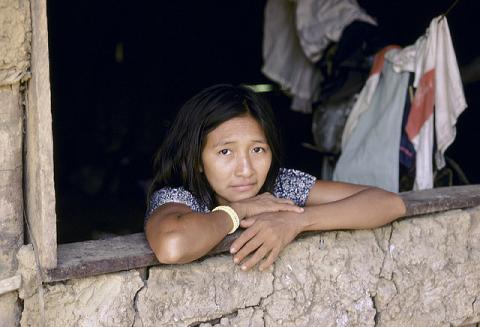
When I was a Maryknoll lay missioner in Brazil, I lived in a neighborhood of migrants in the megacity of São Paulo. At that time in Brazil, rural-urban migration was the norm as rural poverty and drought forced many families to leave the northeast of Brazil to seek work in the metropolitan centers in the southeast. Many of these migrants left their extended families behind and came to São Paulo with no family support. They often suffered from loneliness and isolation. Women had an especially hard time since they were often “donas de casa.” They stayed at home and took care of their children while their husbands either worked or spent the day looking for a job. Most of these women lived in extreme poverty in shacks in a favela or in a tiny, dark rented room. I always admired their incredible management skills – they walked their kids long distances back and forth to school, had lunch ready at noon, kept an impeccably clean house and were able to stretch their husbands’ meager earnings until the end of the month. Of course this intense daily management caused them a lot of stress and many women struggled with anxiety and depression. Adding to this stress, some of them also dealt with violent husbands who drank or trafficked drugs.
Being migrants ourselves, my friend Edina, who is from the northeast, and I empathized with these women. We knew firsthand what it was like to be without family support as you raised your children and struggled to get by. We decided to start a women’s group to offer a place for these stressed and lonely women to rest and meet other women while learning a new skill. We hoped the group could be a place to encounter God as present in communion with other women and a place where they could put down their heavy loads and rest.
In the group, we painted dish towels, crocheted rugs, knitted scarves and cross-stitched tablecloths. It was gratifying to all of us to share and learn from one another. At the same time, we enjoyed each other’s company, talked about the latest soap opera and got caught up on neighborhood gossip.
One young woman who came to the group was Ana. She had moved from the northeast of Brazil and didn’t know anyone in the neighborhood. Her husband worked long hours and she spent most of her days alone in front of the television. She had incredible skills in various handicrafts and became the teacher for our group. We treasured her participation and she rarely missed the group.
After about a year of meeting, our solidarity with each other was strong. Edina and I never thought it would be such a success. Several women said they looked forward to meeting each week with their “sisters.” We were there for each other when a husband left the home, or a child fell sick, or a family lost its shack to torrential rains.
Around this time, Ana got mysteriously sick. She had no family, except her husband, in São Paulo. So our group accompanied her through her hospital stays and intense suffering. After several months, the doctors diagnosed her with lupus, but the disease had already destroyed her kidneys. The doctors said that she would die if she didn’t receive a kidney transplant. In the Brazilian public health system, the possibility of a transplant is almost non-existent. Ana’s husband couldn’t give her a kidney because he didn’t have the same blood type and she was estranged from her family, so none of them came forward as possible donors.
In an amazing act of compassion and love, Edina offered to donate one of her kidneys. She and Ana had already become very close from participating in the group and this act of kindness would solidify their bond forever.
Edina’s offering to Ana saved Ana’s life. It was the answer to the ardent prayers of our women’s group, Ana’s husband and Ana. Edina took her obligation to “live in the Spirit” seriously and as a result gave new life, hope and peace to her spiritual sister. Both Edina and Ana praised God for helping those in trouble and lifting those who have fallen. Their example renewed and inspired our group!
As this diverse group of migrant women from different cultures and regions came together, we experienced the healing presence of the Holy Spirit who bonded us to each other as sisters. This bond even inspired one person to literally give a part of her body to save another. In surrendering our troubles, our heavy loads, our stress, our challenges to God, we received rest, peace and hope.
